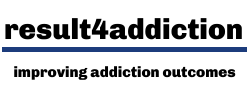Goal setting
What is it all about?
The recovery journey inevitably has its ups and downs - whatever the intervention, practitioners need to negotiate an agreed path towards change. Motivational dialogue (also called motivational interviewing) is a style of consultation/counselling that has been shown to be effective in engaging people with addiction problems in a process of change. Distinguish the use of motivational interviewing skills, from Motivational Enhancement Therapy, a structured treatment using motivational interviewing skills.
The two essential skills are:
asking open questions to explore concerns, elicit intentions to change, and identify desired goals
giving complex reflections as responses and to guide the content of the dialogue towards commitment talk.
Ask a colleague or friend to help with this; tell them to stop you when they hear a question that requires a yes/no answer, (which would be a response to a closed question), when they hear a question with such intonation that the preferred answer is implicit in the question, in other words you make explicit what you wish the person to say, which is also not open questioning, so questions that start with words like, where, when, how and who are safe bets?
Developing key practitioner skills
Asking open questions and giving complex reflections are skills that can be learnt and, as in all skill development, need to be rehearsed until they become normal practice.
① Be sure you understand the motivation of the FP and NMs
② Explore this and check your understanding
③ Use this understanding to guide your open questions and reflective listening
④ Remember you are aiming for change talk "Things cannot continue as they are"; "I want to change"; "I think I can do it"; "I think my life will be better if I change"
⑤ Once you have elicited change talk you want to be sure to attempt to elicit commitment talk: making an actual plan.
Always remember the therapist’s mantra…
✔︎ Where are you now?
✔︎ Where do you want to be?
✔︎ Who is going to help you to get there?
✔︎ What will everyone be doing that is going to be helpful
✔︎ How shall we know whether this worked?
This is how to do it…
In this demonstration Gillian Tober uses motivational dialogue in an iSBNT session. Goal setting is an essential element of iSBNT: the first video is about setting the drinking goal and the second explores alternatives to drinking. The session is with father and daughter: here are their back stories…
Father
in his late 50's currently unemployed
drinking began to increase after being made redundant from his job in the merchant navy two years ago
used to just drink in the pub on 3-4 nights each week - over the last year has been drinking at home during the day
now drinks every day and has rarely had a day off drinking for the last 18 months
usually drinking super-strength lager having first drink at midday
spends all day at home watching TV and playing video games
caused embarrassment at daughter's 21st birthday - arrived drunk and got so drunk his wife had to take him home
lost driving licence last year through drink driving
several hospital admissions related to liver and stomach problems related to his drinking
Daughter
lives away from home
has one younger brother (15) who lives at home
works as a receptionist in a hotel
sees her boyfriend most weekends
telephones home every night - mainly because she worries about how mum is coping
very worried about dad's drinking and the effect it is having on his health and the family, particularly mum
family relations are very strained
doesn't like bringing boyfriend home because she is embarrassed by dad
wants to help dad sort out his drinking but doesn't really know where to start
What to look out for in the videos
It is clear that the drinking goal, at least in the first instance, should be abstinence. Father is resistant and his daughter is willing to go along with the idea of cutting down on drinking. To avoid eliciting resistance, Dr Tober does not reject the idea of cutting down, but ‘gives way’ to keeping it as an option pending returning to her agenda, using open ended questions, to get agreement that a period of abstinence is the best plan. The second video is about putting a plan in place that is likely to be effective at achieving the abstinence goal. Notice Dr Tober starts by getting ideas from father and daughter then keeps focussed until she is satisfied that a specific, realistic plan that is likely to be implemented, has been agreed. When watching the videos you might want to count how many open questions you can spot and note how father and daughter respond…
Goal setting (10 mins)
Making a plan (13 mins)
This is what you need to know…
Using the key skills of motivational interviewing with all members of the network is the best way forward because:
It diminishes the threat of conflict and argument
It is most likely to keep people engaged
It is most likely to assist in eliciting change talk
It is most likely to result in making concrete commitment-to-change statements
Have you checked out the evidence for how good motivational interviewing is?
Good outcome check list...
✔︎ Did you achieve consensus in the network?
✔︎ Did you gain an understanding of the motivational states of father and daughter?
✔︎ Did you manage to elicit concerns about current behaviours and their consequences?
✔︎ Did you elicit thoughts about a better future?
✔︎ Did you elicit confidence in the possibility of change?
✔︎ Did you elicit a concrete intention to change?



